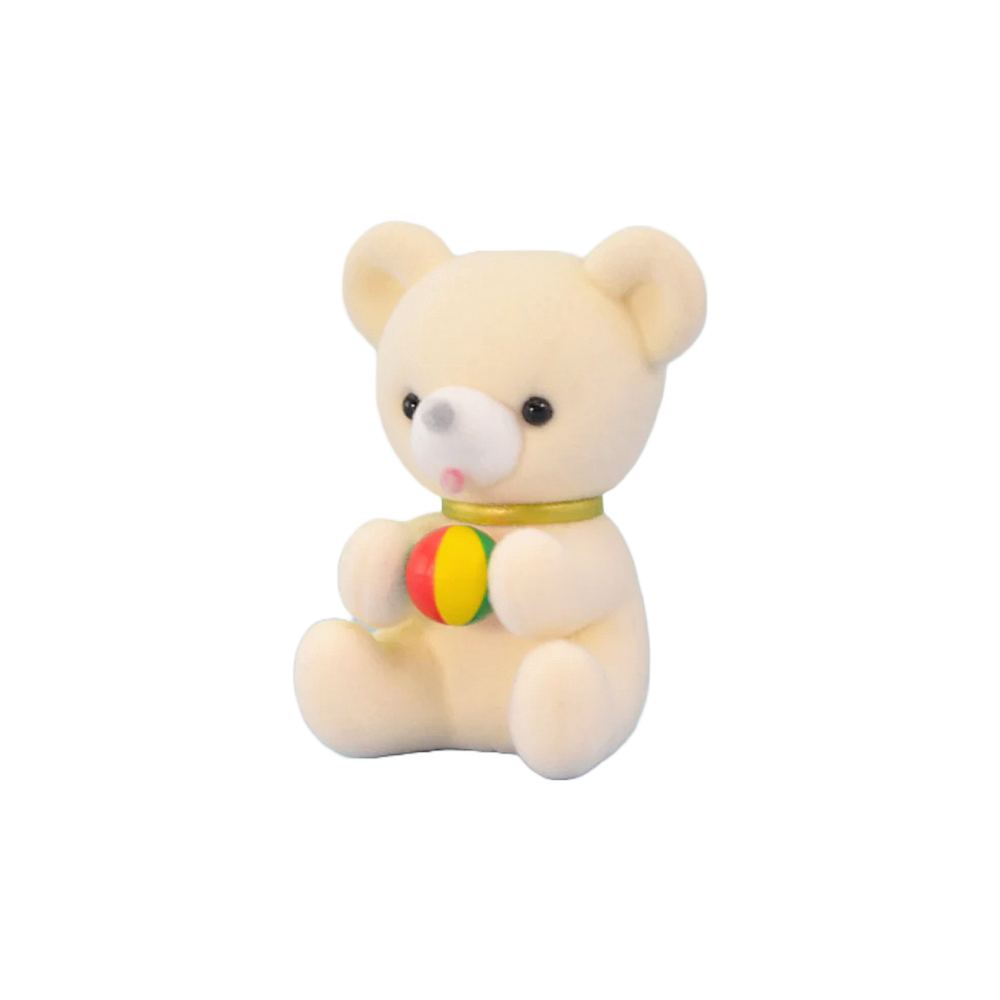Surviving Sibling Struggles – Janet Lansbury

A guardian merely as of late posed this query in a Fb dialogue group: Why do older siblings typically damage youthful ones? Take toys from them? I don’t actually perceive…
I commented: The query for me: why wouldn’t they? The youthful youngster ripped the older one’s life aside. It’s pure for the older youngster to want to administration, dominate, and take out frustration on this one who rocked their world.
In that exasperating second when our toddler or preschooler is exhibiting aggressively within the course of the toddler, or when our youngster (of any age) is selecting on a youthful sibling, it’s actually robust to mood our feelings and perceive.
Our responses do matter. Heaps. The alternate choices we make when coping with conditions of battle between siblings can calm fears, assemble confidence, and assist to ease sibling rivalry. Or, alternatively, they are going to gasoline and intensify it.
When our extra reactive, so much a lot much less useful responses are knee-jerk and repetitive, they are going to create insecurity, set off siblings to search out out as “dangerous” or “inept”, and even instill lifelong resentments within the course of each other.
Clearly, this isn’t the dynamic we envisioned or wished as quickly as we had a variety of youngster. We had hoped they’d be finest buddies. Throughout the event that they didn’t luck into that type of chemistry, we’d accept mutual love, respect, and a bond that will strengthen and assist them extended after we’d left the planet.
Listed under are some recommendations for guaranteeing optimistic outcomes (so as of significance):
Bodily Security
Security is regularly our first precedence with kids, and harmful struggles between siblings are by no means okay. All through the early years, notably, kids usually behave impulsively and specific intense feelings by means of limit-pushing habits that could possibly be aggressive. Add the transitional trauma of a mannequin new sibling to the combo and, correctly, it’s going to be highly effective. For instance, if a toddler or preschooler is leaping on the mattress wherever close to the toddler, chances are extreme superb that one issue not too good goes to occur, no matter what number of firm reminders we offer. She or he wants us to regulate to by means of and assist him down.
Teen specialist Magda Gerber advisable protected, enclosed play areas (like cribs or playpens) for very youthful infants and a a lot greater, gated-in play space for cell infants and toddlers as so much as two years outdated. With a second baby throughout the residence, these protected areas is usually a godsend for shielding infants, safeguarding an older youngster’s extra refined toys and duties, stopping harmful testing, and easing mother and father’ minds.
Truly, irrespective of even primarily in all probability probably the most thorough preventive measures, stuff occurs. Youngsters know they shouldn’t have achieved it, nonetheless their impulsive emotions make them do it anyway, so our under-reaction is finest, whereas we furthermore acknowledge the kid’s perspective with out judgment. For instance, whereas eradicating our youngster’s dying grip from the infants arm, we might acknowledge, “You are feeling like squeezing your sister very arduous. I gained’t imply you may. You’re letting me know you want my assist. Come, I’ll preserve your hand when you sit subsequent to me. In case you’re feeling too excited, you in all probability can play over there away from the toddler.”
These older kids are in a sort of disaster mode, caught up of their fears surrounding this huge change contained in the household dynamic, typically lashing out, usually utterly out of themselves. Intense emotions might sound to fade after which reappear on account of the child develops motor expertise and turns into extra of a vital rival.
Intentional unsafe habits is regularly a mirrored image of our kids’s feelings and interior turmoil. To repeatedly behave in a bodily protected methodology they should really actually really feel emotionally protected…
Emotional Security
Serving to kids to course of feelings concerning the addition of a sibling (or one thing, for that matter) merely will not be as vigorous on account of it sounds. We don’t assist by reacting impatiently after they’re upset, or by feeling accountable or answerable for calming them down. We undoubtedly don’t assist by coaxing or forcing them to particular emotions by means of manipulative strategies like purposeful roughhousing or the sinister-sounding “scheduled meltdowns” some consultants advise.
Processing emotions comes naturally to youthful kids, nonetheless seldom on cue. The truth is, due to their openness to the movement of their feelings, kids are astonishingly good at getting the sentiments out. What they want is for us to easily accept their feelings in all of the random, inconvenient areas they might seem.
The feelings kids really actually really feel all through the addition of a sibling are processed in a method similar to the most effective methods adults grieve. (The large and apparent distinction: kids have far so much a lot much less emotional self-control than adults do.) Grief can appear to look out of nowhere. We’d not shed a tear on the funeral, nonetheless then later a random and trivial expertise gadgets us off and opens the floodgates.
If solely youthful kids might sit with mother and father or on a therapist’s chair to debate and specific their emotions of concern, disappointment, loss, betrayal, and jealousy. That can probably be heaps extra helpful for us and undoubtedly simpler to acknowledge and perceive. In its place, they push limits, make unreasonable requires and explode, or meltdown over primarily in all probability probably the most trivial, random factors. That is the “grief” that they want our assist with, and the assistance they want is pure, unconditional acceptance.
Acceptance is hard, on account of we overlook. We don’t assume to attach our youngster’s big overreaction to the deeper feelings she or he is also very seemingly processing.
Lauren shared a very good event: the “horrible” expertise her household had on the grocery retailer when her 2 12 months outdated had a full blown tantrum over a seemingly miniscule disappointment and wanted to be bundled into the automobile, screaming all the most effective methods residence. It ended correctly and equipped therapeutic, on account of Lauren accepted her daughter’s emotions. She merely allow them to be:
“I took each kids inside and, as I used to be nursing the model new baby, I sat on the sofa and let my (very verbal) two 12 months outdated get all her emotions out. She primarily re-told me every little issue that occurred on the retailer (“I didn’t need the girl to checkout my foo,” “I needed my cart as soon as extra,” “I acquired in a struggle with Daddy”), and after every assertion she made I merely repeated as soon as extra what she was telling me (no judgment, not making an attempt to make her really actually really feel better, merely “You didn’t need the girl to checkout your meals,” “You wished your cart as soon as extra,” and loads of others.).
Every time she educated me one issue I might see her beginning to cry as quickly as additional, nonetheless then every time I repeated as soon as extra what she had talked about she grew to become calm. In that second I really felt linked with my daughter and knew that, it doesn’t matter what had occurred earlier, she felt heard and revered.”
Permitting emotions to be expressed provides the peace of ideas kids ought to know that they’re okay — protected in our care and our hearts. This sense of security lessens impulsive, emotionally-fueled habits. So settle for and acknowledge even primarily in all probability probably the most minor sibling complaints with out judging, defending, explaining, or making an attempt to revive them. For instance:
“She’s going to get higher than me each time!” You are feeling like your sister’s getting higher than you is prone to be. That’s upsetting to you.
“I don’t need him to the contact the wall!” You don’t need the toddler to the contact the wall. You may need some very sturdy emotions about that.
“He gained’t play with me!” You really want your little brother to play with you, and he’s saying no.
“She punched me!” The brand new youngster punched you! Ouch!
In calmer, quieter, one-on-one moments, talk to kids about their emotions; as quickly as additional, not anticipating them to emote on cue, nonetheless merely providing them messages of reassurance that their emotions are widespread and anticipated:
“Being an unlimited brother is also very arduous typically. It’s widespread to get indignant on the child or at mother or dad, really actually really feel unhappy, concern or simply be upset and under no circumstances know why. In case you really actually really feel any of these factors, I’ve to know. I’ll regularly perceive, love you, and must help you.”
A guardian I consulted with merely as of late shared that when she described to her son the difficulties of being an unlimited brother, he all of the sudden grew to become very quiet and attentive. He took in each phrase after which murmured, “Extra speaking.”
An all-feelings-allowed atmosphere that helps kids course of their feelings safely creates security, peace, and precise love between siblings.
Taking Toys
Why do older siblings take toys? Maybe on account of the youthful sibling’s provide ripped the rug out from beneath them, they usually have a robust impulse to take as soon as extra administration. Our irritation with this comparatively innocent prepare will have a tendency to extend it, whereas a extra relaxed, trusting, forgiving angle helps this urge to handle subside. Perspective is the important issue.
Do not forget that in an toddler’s or toddler’s eyes, older siblings are akin to film stars. And to think about, for one second a celeb really checked out me whereas taking that object from my hand. In was in my hand, and now it’s in her hand. Wow! She seen me!
If we’re going to avoid fueling these conditions with our grownup views, infants and toddlers usually uncover them extra fascinating than problematic. It’s merely stuff in any case, not nearly as thrilling as momentarily collaborating in “collectively” with their riveting older sibling.
I needed to smile when in a contemporary guardian/toddler class, a 15 month outdated systematically handed off toys to her associates. She has an older brother at residence and is accustomed to toys being taken from her. Nonetheless, surprisingly, pretty than utilizing her peer play as payback time, she appeared to consider that toys, like scorching potatoes, wanted to be handed off. I joked that it maybe didn’t really actually really feel right to her to be the one holding the toy. Having enjoyable with collectively had come to point that the opposite youngster has it.
If we’re open to their messages, youthful kids will repeatedly open up to us that it’s not concerning the stuff, it’s concerning the connection.
Nonetheless as soon as we react with anger, annoyance, even barely little little bit of impatience, we threat making our older youngster really actually really feel like we have now taken sides within the course of her or him, though these are impulsive actions sparked by intense, comprehensible emotions.
What we can do to assist ease toy taking: preserve calm, lead with notion, give informal suggestions and an occasional boundary if the toy taking is common. “Hmm… It appears you’ve been taking a number of toys away. I’m going to assist your brother shield this one. What else would possibly you do to play with him?” After which if the older youngster reacts, “That’s irritating for you, I do know.” Releasing these emotions is regularly optimistic.
Altering our reactive instincts with notion every time attainable empowers siblings to take baby steps within the course of conducting their relationship independently and provides them the emotional security they should really admire one another.
As shortly as in a blue moon, if we’re very, very fortunate, we might even see the proof.
***
I share extra about toddler habits, boundaries, and emotional successfully being in
No Dangerous Children: Toddler Self-discipline With out Disgrace
I furthermore terribly advocate:
Siblings With out Rivalry by Adele Faber and Elaine Mazlish (considered one among my all-time favourite parenting books)
Ask the Mum or dad Coach: 7 Methods to Assist Your Teen Alter to a New Toddler by Susan Stiffelman
A Determine for Sunshine and Enlightened by Nadine Hilmar
Sibling Conflicts by Lisa Sunbury
Dealing With Sibling Aggression by Amanda Morgan
(Resulting from Sara Prince from bonzo, chooch, mushy and me for this enchanting picture!)






